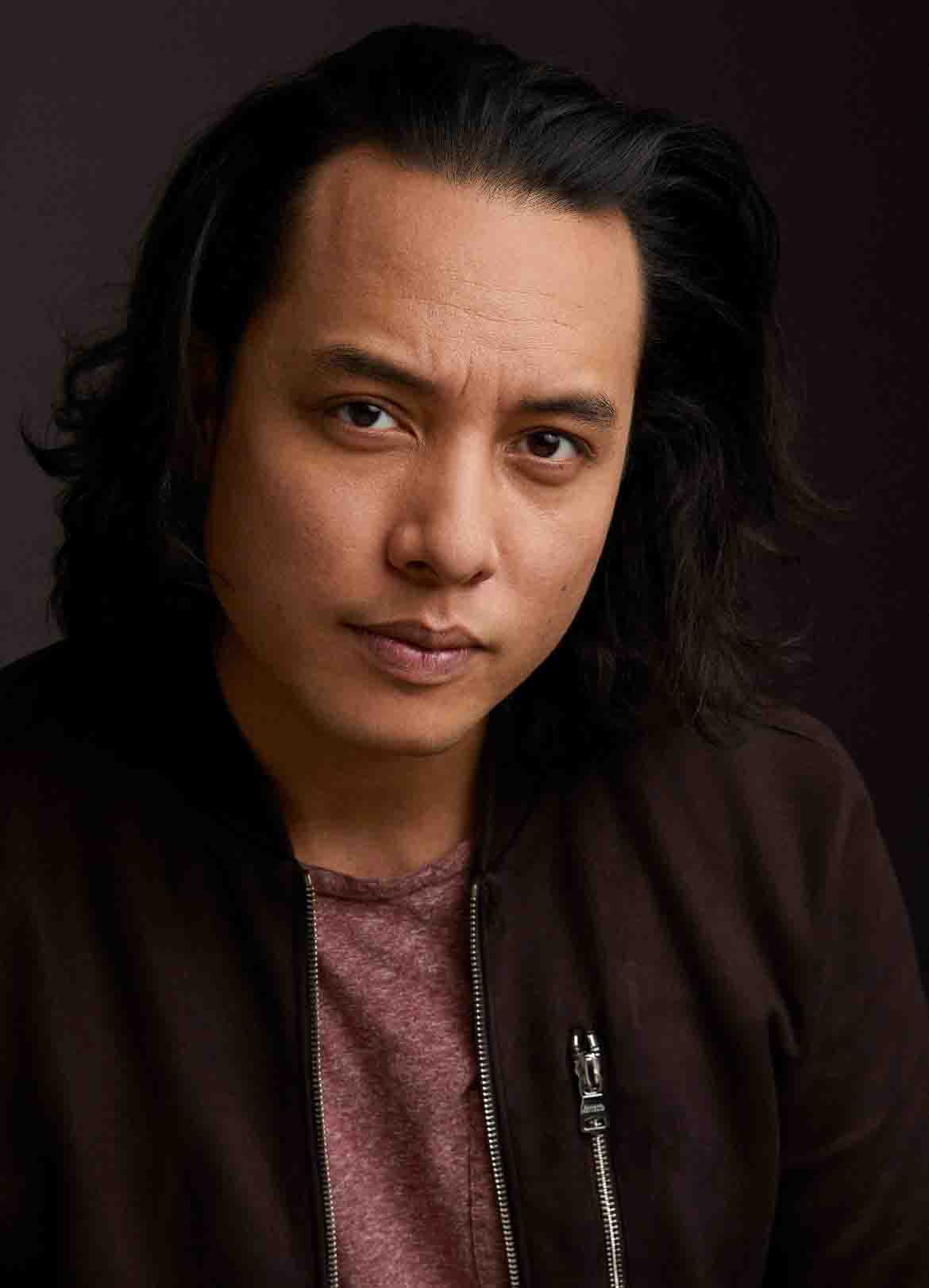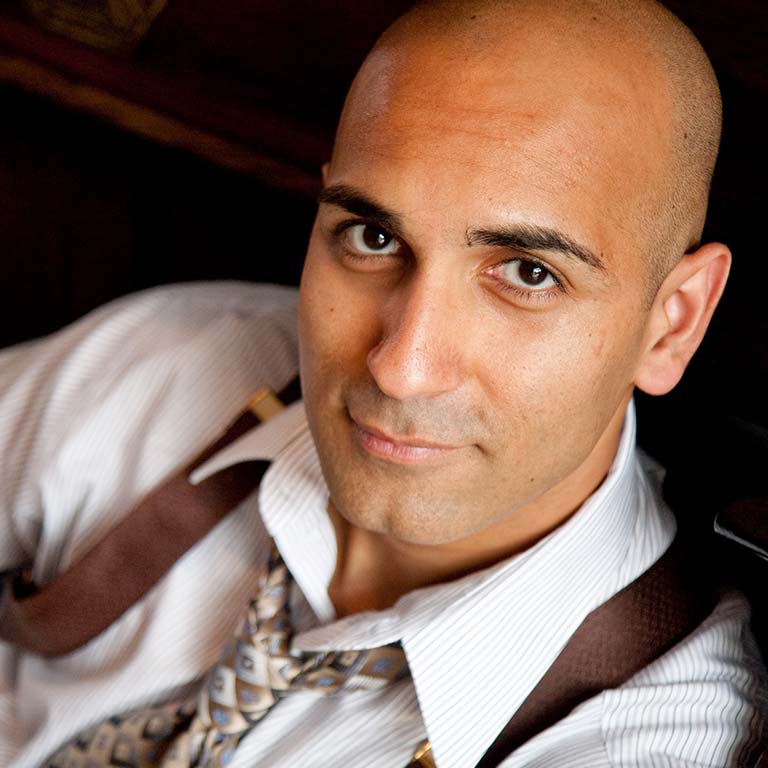The American Identity: A Work in Process


with Artistic Associate Matthew C. Yee & Ensemble Member Kareem Bandealy
KB: Howdy, pardner 🤠
MCY: Howdy! 🐴
KB: Two postponements later, we’re bloody here. Finally.
MCY: Yes. I am so excited that we get to finally share this story.
KB: Let’s chat, Matt.
MCY: I would love that.
KB: I’m a Cancerian and you’re a Scorpio. So, we’ll start with feelings. You are now, in addition to singer, actor, musician, composer, visual artist, animator, maker of leather goods and furniture – gimme a sec to catch my breath – you are now a produced playwright! Talk about this moment in your life. How does it feel, Matthew?
MCY: I feel very proud. I have been working at this playwright thing for a really long time and have never had the confidence to try and get something produced, so for this story to be shared at Lookingglass is a really special moment for me.
KB: Grateful for that glimpse inside, my friend. Let’s move ourselves toward the play now. Before gglassworks picked it up for a read in January of 2020, it had been given a trial as part of Steppenwolf’s LookOut series. Much has changed. The play I read in late 2019 seemed to be focused on deconstructing AAPI stereotypes. Though, it still bears that attribute, the play we’ll see tonight feels more like a deconstruction of the American identity entire. We both know it was always baked in, but talk to me about how that emerged from draft to draft, would you?
MCY: One of the benefits of the long postponement of this production was it allowed me to revisit and rethink the play as I grew and changed. The me that wrote the play in January 2019 was very different from the me I was in 2020. Something big happened that year. I forget… Then I had my son in 2022 and I changed and grew even more, and the play was allowed to change with me. The original draft dealt a lot with Asian identity, but the show you will see tonight explores identity in a more universal way.
KB: Kinda mind blowing what hearing one’s work over and over with a group of really keen artists involved can show a playwright about their drives, isn’t it?
MCY: Yes. It’s an incredible gift to have a group of talented people embodying your characters and saying your words out loud. So much is revealed when you finally hand a story over to a cast. There are always new ideas and motivations buried inside the writing that I never would have noticed without this brilliant group of artists really owning the work.
KB: No doubt. It’s a smart group. Okay, but this play features, front and center, the very heavy subject of sex trafficking too. Talk about its roles in Lucy and Charlie’s Honeymoon.
MCY: Toxic masculinity is definitely a theme I am exploring in this piece. I am interested in what motivates violent and hateful acts, particularly in American men. Violence against Asian women, as a result of institutionalized hyper-sexualization and fetishization is something so present in American culture. Violence against Asian men and women in general has become so common in the last few years. I feel compelled to address it.
KB: Solid. Not to belabor it, but it isn’t easy to balance that subject with the comedy in the piece, is it? Say more about how that work’s been for you.
MCY: It is a tough balance to strike for sure. There has been a ton of trial and error. I have found that the best way to find comedy in dark situations is to allow the humor to come from the characters. We let the situations be dark, but we let the characters (who are funny) behave how they are gonna behave.
KB: Y’know it strikes me that there’s some overlap with you and our comrade Kevin Douglas in this pursuit. Though, of course, each of you have a very distinct voice and manner of dealing with dark humor. Let’s talk about the sex in the show. That is, the “normalization” of AAPI peoples as sexual beings. Your amazing collaborator, Amanda Dehnert, said it well that the Western gaze often hyposexualizes Asian men and hypersexualizes Asian women (you’d mentioned this part earlier). Speak of your own experience with this, if you would, and how you are investigating it in your play.
MCY: I am trying to allow the Asian men in the show to be sexy and allow the Asian women to be crass and kinda gruff. It is pretty common in America to see Asian men as asexual or feminine. That isn’t by mistake, it was a stereotype created centuries ago in response to America‘s fear of Asian men coming over and stealing their jobs and women. At the same time Asian women were being portrayed as submissive and hyper sexual, again as a way to minimize their effect of the country and population. The Page Act prevented Chinese women from coming to America under the pretense that they were sex workers. The effects of this institutionalized racism is something that I have certainly experienced, and I am willing to bet that most Asian Americans have dealt with at some point in their lives.
KB: Ok, we did racism through false narratives on sexuality. Now let’s do violence! What do you think, is violence a key component of the American identity?
MCY: Absolutely. Why do we need all these f**king guns? Because Americans still think they are cowboys, protecting their cattle and standing up to a tyrannical government. This country was started with violence. You take what you want at any cost. Doesn’t matter who you step on or kill to do it. And that persona of the rugged individualist, the cowboy, has been inextricably linked to our American identity.
KB: Real talk. Aaaaand on a lighter note (🎵): there’s music! Really fun music. Played live. By the actors. And sung. And intentionally drawing upon certain vintage American genres. The choice for this and the process of putting it all together is fascinating to me. It’s true that I’d have a hard time imagining this play without it. But you tell me, why is the musical element essential to the story-telling of L&C?
MCY: The genres I have chosen to pull inspiration from: Country Western, Americana, Folk, Nashville Sound, bluegrass all belong to the American identity. And often times they can feel like very insular genres(country in particular) that only belong to a select few true Americans. I wanted to take that music and make it more inclusive by utilizing it to tell a story about a group of Asian American renegades. It’s also music I grew up listening to, which as an Asian American kid I totally felt weird about. I chose this music because I wanted to make it not weird anymore, or still weird maybe but, ya know… weird in a cool way.
KB: It’s the coolest weird, MCY. For sure. But you know what? We haven’t really said a word about the fact that you’re playing one of the title characters in the show! How difficult is it to toggle between all the parts – playwright, composer, AND performer?
MCY: It has been super rewarding and fun, while also being a bit of a struggle. It is hard to see the big picture when you are so close to it. There’s also so much of me in this play, and it is one thing to write your heart’s song, but it is quite a different thing to sing it. Overall I am happy to bring this character to life, because who knows him better than I do? But next play I get produced I’m just gonna sit in the corner with my hood up and a laptop in front of my face, drinking coffee and whispering commands to my director. That’s a joke kinda. Thankfully the brilliant and talented Chris Pow has been with us the whole process as my cover, so when I needed to step away from the character and focus on the writing or the music or the shape of the story, or just sit in the corner with my hood up, he was ready and willing to put on his cowboy hat and jump on stage.
KB: Yes, big props to Chris. But also: you’re a wizard. And you’ve got more in store, haven’t you? Really quick, tease some of the work you are developing with us. Just a title and a sentence on the subject matter. You know, so the People can whet their appetite.
MCY: Sure, my most recent play is called China House and it focuses on a struggling family-owned Chinese restaurant in rural America. Another play I have been working on is called White Rooster, which is about a woman in early 1900s China whose fiancée dies and she is compelled by tradition to marry a white rooster in his absence.
KB: Wowie, those are both ver— Hold up. Did you hear that? The half-hour call…
MCY: Yes, our stage manager just rang the cowbell. Better get my boots on and tune my guitar.
KB: Yeah, I gotta grab my seat too. GFSSRTFH ✊🏾